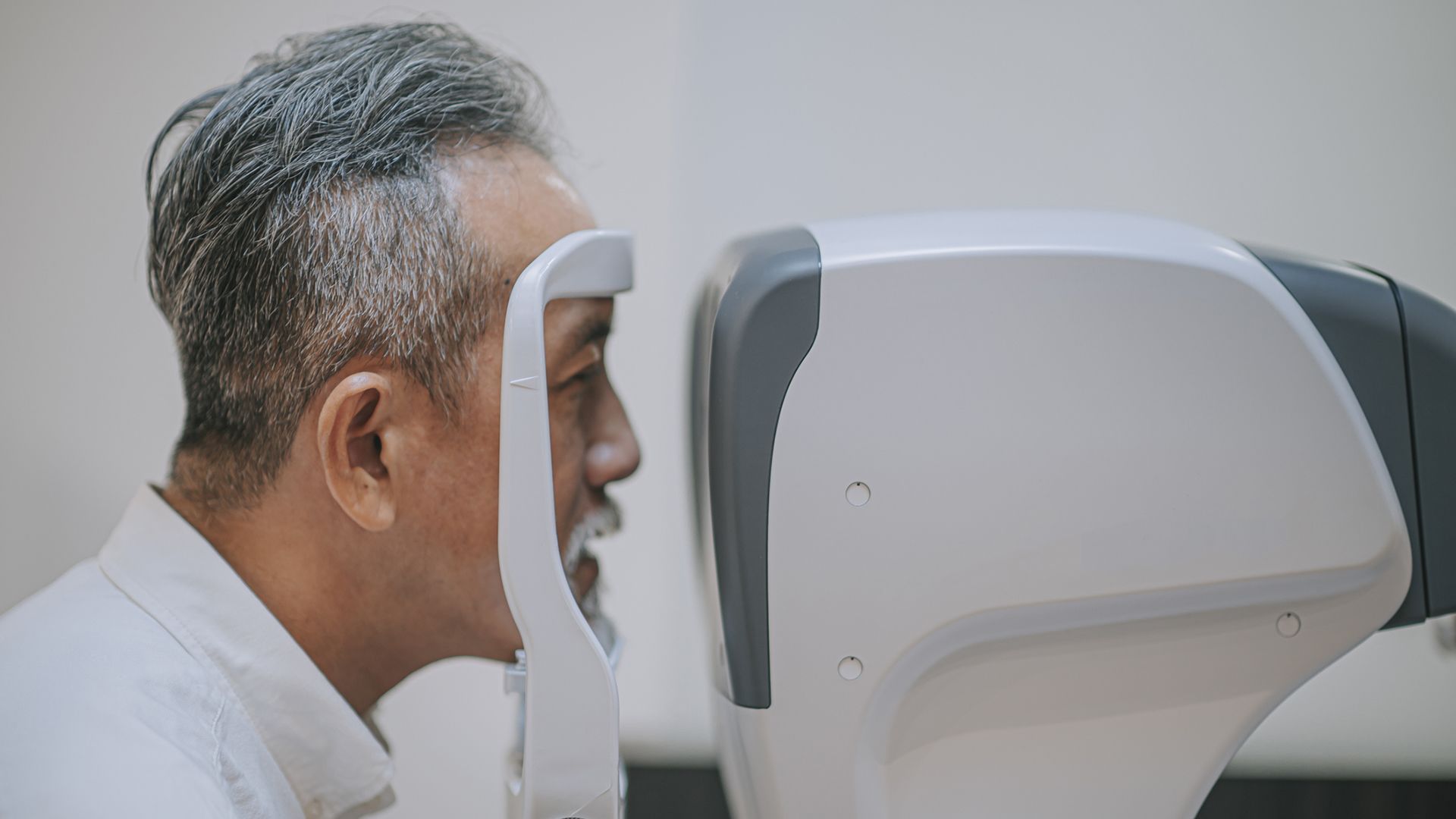Updated on May 15, 2024
Diabetic macular edema (DME) is a complication of diabetes. It is caused by having another diabetes eye complication called diabetic retinopathy. Diabetic retinopathy is damage to the blood vessels in the eye caused by uncontrolled blood glucose levels. DME occurs when blood vessels leak into a part of the eye called the macula, causing the macula to fill with fluid and swell.
DME causes problems with central vision—the ability to see in detail what is directly in front of the eyes. Symptoms can range from blurry vision and colors looking dull and faded to severe vision loss.
Anti-VEGF therapy for DME
Anti-VEGF medications are the mainstay of treatment for DME. VEGF is vascular endothelial growth factor, a protein the body uses to repair and maintain blood vessels.
However, diabetic retinopathy is associated with elevated levels of VEGF, and elevated levels of VEGF damage blood vessels, causing blood vessels to leak blood and fluid. In the most advanced stage of diabetic retinopathy, this contributes to neovascularization—the growth of abnormal blood vessels in the eyes.
As the name implies, anti-VEGF medications block this protein from working, which helps stop blood vessels from leaking. This can reduce the symptoms of DME in many cases and prevent vision loss from getting worse. Anti-VEGF medications are also used to treat diabetic retinopathy.
Anti-VEGF medications are given as injections into the eye, a procedure that is typically painless and requires a short visit to a healthcare provider’s office.
Some people may need to switch treatments
In many cases anti-VEGF injections are effective at treating DME. However, different people can respond differently to different treatments. If DME is not responding to anti-VEGF injections, your healthcare provider may recommend switching to a different medication or another type of therapy. For example:
- A different anti-VEGF medication. Several anti-VEGF medications are available, and switching from one medication to another can yield a better result in many cases.
- Corticosteroid medication. Corticosteroids are medications that reduce inflammation and suppress the immune system. Specific steroid medications are used in the treatment of DME and other eye problems that involve inflammation. These medications are injected or implanted into the eye. Steroid medications may be used in combination with other therapies.
- Laser photocoagulation. In previous decades, before anti-VEGF medications became available, laser photocoagulation was the go-to treatment for DME. This approach involves using a carefully aimed laser to seal leaking blood vessels. This can help reduce the risk of DME getting worse.
What to ask when starting a new treatment
You can ask these questions if your healthcare provider is recommending a change in treatment for DME:
- Why do you recommend switching treatments?
- How does this therapy work?
- How is the therapy administered? How many doses will I need?
- What is the goal of using this treatment?
- What is the recovery process like after an injection or procedure?
- What are the potential benefits of this approach?
- What are the potential side effects or complications? Is there a risk of serious side effects?
- What will this treatment cost?
- What are my options if this treatment does not work?
- Always tell your healthcare provider about all medications you are taking, including medications for other conditions, over-the-counter medications, and supplements. Ask if any of these could affect the eye or interfere with treatment.
While the focus of this article has been on therapies that directly address DME, it is also important to mention diabetes control. DME is a complication of diabetes, and improving diabetes control is an essential part of managing DME. Many of the questions above will also apply when discussing changes to diabetes treatment.






